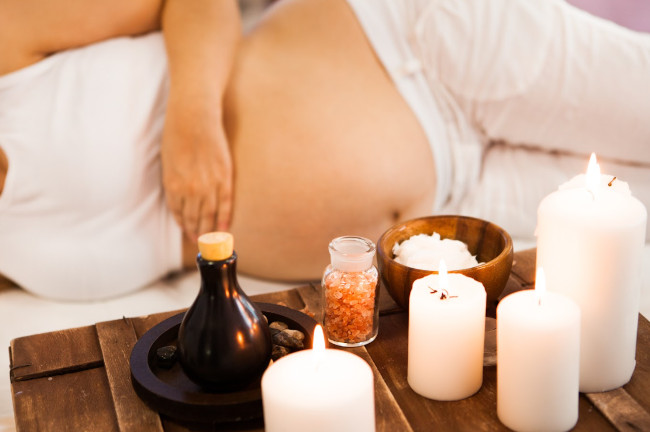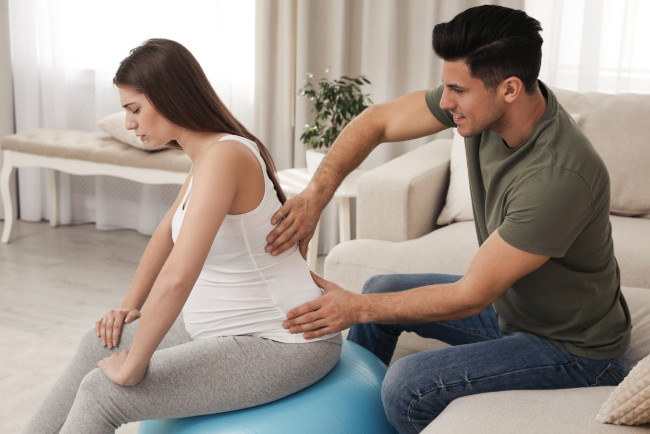
Embarking on the journey of pregnancy is akin to stepping into a realm filled with wonder, anticipation, and a multitude of physiological changes. As the weeks turn into months, an expectant mother’s silhouette gracefully shifts, marking milestones in the development of the new life she’s nurturing. Every heartbeat, every fluttering kick, becomes a testament to the miracle of life. However, with this profound transformation also comes a range of discomforts – an aching back, swollen feet, emotional highs and lows, and the constant search for that elusive perfect sleeping position. For centuries, women have sought refuge in natural remedies and relaxation techniques to alleviate these discomforts. Among these, massage therapy has always held a prominent place. Its gentle strokes promise relief, relaxation, and a momentary escape from the rigors of pregnancy. Yet, many ponder the safety of massages during this delicate phase. This article seeks to unravel the intricacies of prenatal massages, weighing their benefits against potential risks, and guiding expectant mothers through informed choices.
The Benefits of Prenatal Massage
Stress Reduction: Pregnancy can be a stressful time for many reasons, both physically and emotionally. A prenatal massage can help release endorphins, the body’s natural painkillers and mood elevators, reducing stress and promoting relaxation.
Pain Relief: Back pain, neck pain, and tension in the shoulders are common during pregnancy due to the added weight and changing center of gravity. A massage can help alleviate these discomforts.
Improved Circulation: A massage can boost blood and lymph circulation, helping to distribute essential nutrients to the mother and the baby. This can also assist in reducing edema or swelling in the hands, feet, and ankles.
Better Sleep: As the body relaxes and stress reduces, many women find that they sleep better after receiving a massage.
Hormonal Balance: Some studies suggest that prenatal massage can help to regulate hormones associated with relaxation and stress, leading to mood regulation and improved cardiovascular health.
Safety Concerns and Precautions
While prenatal massages offer numerous benefits, there are also considerations to ensure the safety of both the mother and the baby.
Timing: It’s commonly recommended to avoid massages during the first trimester due to the higher risk of miscarriage during this period. From the second trimester onward, massages can be considered safer.
Positioning: Lying flat on the back after the first trimester can put pressure on a major blood vessel, potentially reducing blood flow to the fetus. A trained prenatal massage therapist will ensure that the mother is positioned safely, usually on her side with the support of cushions.
Pressure Points: There are certain pressure points in the body that, when stimulated, might promote uterine contractions or affect the fetus. A well-trained therapist will avoid these areas.
Medical Conditions: Women with high-risk pregnancies or those with conditions like preeclampsia, hypertension, or other complications should consult with a healthcare provider before getting a massage.
Choose a Qualified Therapist: It’s crucial to choose a massage therapist who is certified in prenatal massage. They will have the specialized training needed to ensure the safety and effectiveness of the massage.
The Link to Painful Periods
Painful periods, scientifically known as dysmenorrhea, have been a common ailment among women for generations. It’s a condition that sees many grappling with severe abdominal cramps, lower back pain, and even nausea. These discomforts can be so debilitating at times that they disrupt daily activities, making even simple tasks seem daunting.
Interestingly, the same therapeutic touch that can soothe the aches and stresses of pregnancy has also been found beneficial for those who suffer from dysmenorrhea. Regular massages, especially focused on the abdominal and lower back areas, can work wonders in alleviating the pain associated with menstrual cramps. The massage increases blood flow to the affected areas, helping to relax the tense muscles and providing much-needed relief.
Moreover, the holistic approach of massage therapy not only addresses physical pain but also caters to the emotional and psychological distress that might accompany painful periods. The calming ambiance, combined with the rhythmic pressure of expert hands, can also aid in reducing anxiety and mood swings that some women experience during their menstrual cycle. It’s fascinating to note that massage, as a therapeutic tool, seamlessly bridges the needs of a woman’s body across different stages – from the menstrual cycles of youth to the transformative journey of pregnancy. The link between the relief experienced during painful periods and that sought during pregnancy accentuates the adaptability and significance of massage therapy in a woman’s life.

Conclusion
The journey of pregnancy is a rich tapestry woven with moments of delight, anticipation, challenges, and physical metamorphosis. As women traverse this path, seeking solace in remedies like massage therapy becomes not just a luxury but often a necessity. The soothing touch of expert hands can make the voyage smoother, turning discomforts into moments of relaxation.
But as we’ve discovered, the benefits of massage transcend the boundaries of pregnancy. It acts as a balm for painful periods, showcasing its versatility as a remedy for various stages of a woman’s life. Like a trusted friend, massage is there to offer comfort during menstrual pains, to nurture during the months of expecting, and to rejuvenate post-pregnancy.
The key, however, lies in informed choices. It’s paramount to consider individual health conditions, to consult with healthcare providers, and to trust only trained therapists to ensure the safety and well-being of both mother and child. Prenatal massages, when approached with caution and knowledge, can serve as a cornerstone in an expectant mother’s wellness regimen. As with any therapeutic intervention, understanding, and respect for the body’s signals is essential.
In a world where self-care is increasingly recognized as crucial, especially during pivotal phases like pregnancy, embracing practices like massage therapy becomes an act of empowerment, self-love, and, indeed, a celebration of the incredible journey of motherhood.
–




